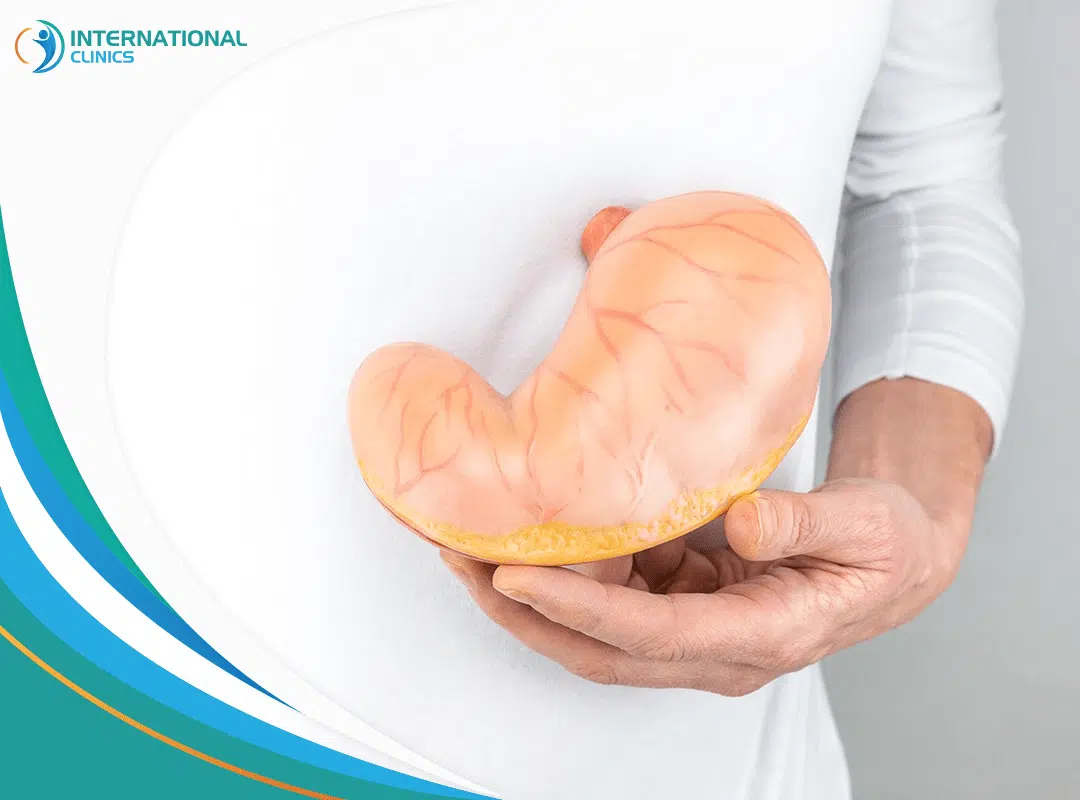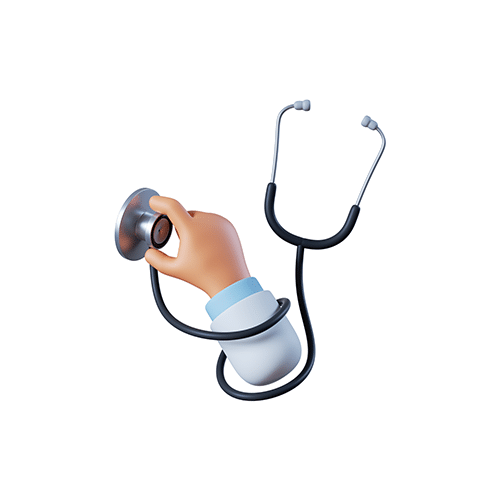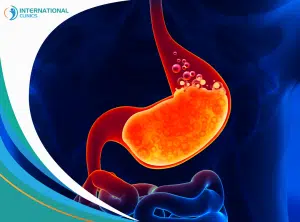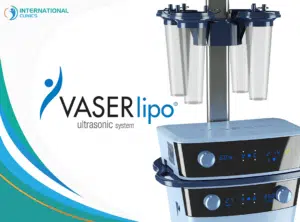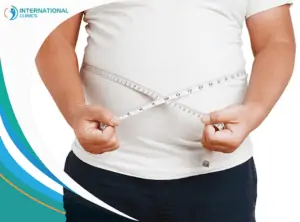Gastric sleeve surgery is considered a relatively safe and effective weight loss procedure. When you undergo gastric sleeve in Turkey, your stomach size is reduced to promote weight loss. However, this transformative procedure can come with its own set of challenges.
Before deciding on undergoing this procedure, it’s essential to weigh the benefits against the possible side effects. The side effects associated with gastric sleeve surgery may vary in severity and duration for each individual.
This article aims to explore the common side effects associated with gastric sleeve surgery and provide readers with a comprehensive understanding of the potential complications they should be aware of before making an informed decision.

Immediate Post-Surgery Side Effects
Pain and Discomfort
- Right after undergoing gastric sleeve surgery in Turkey, patients may experience varying levels of pain and discomfort. This is a normal part of the recovery process and can be managed effectively with the help of prescribed pain medications. The level of pain experienced can differ from person to person, but it typically subsides within a few days as the body starts healing.
Nausea and Vomiting
- Nausea and vomiting are common side effects that many patients encounter immediately after gastric sleeve surgery. These symptoms can be attributed to several factors, including the anesthesia used during the procedure, changes in diet, and the body’s adjustment to the surgical alterations. To minimize these effects, healthcare professionals often provide anti-nausea medications or recommend certain dietary modifications.
Fatigue and Weakness
- During the initial recovery period following gastric sleeve surgery, it is normal for patients to experience fatigue and weakness. The body undergoes significant changes during this time as it adapts to its new state. The reduced caloric intake due to a liquid diet in the first few days post-surgery may contribute to feelings of tiredness. Patients need to listen to their bodies and allow themselves ample rest during this phase.
Liquid Diet
- Following gastric sleeve surgery, patients are usually required to adhere to a liquid diet for a specific period. This helps in allowing the stomach enough time to heal without putting excessive strain on it. Initially, clear liquids such as water, broth, and sugar-free gelatin are recommended before gradually progressing towards thicker liquids like protein shakes or pureed foods. Following medical advice regarding dietary restrictions is crucial for successful recovery.

Get a Free Consultation Right Now!
Gastric Sleeve Surgery Side Effects
The severity and likelihood of risks and complications after obesity surgery in Turkey in general usually vary from patient to patient. Here’s a table summarizing the risks and complications of gastric sleeve surgery:
| Risk/Complication | Description |
|---|---|
| Nausea and Vomiting | Rapid emptying of the stomach causes abdominal discomfort. |
| Pain and Discomfort | Temporary pain and discomfort around incision sites. |
| Fatigue and Weakness | Patients may experience weakness during the healing process. |
| Acid Reflux | Some patients may develop acid reflux post-surgery. |
| Dehydration | Limited food intake may lead to dehydration. |
| Dumping Syndrome | A chronic condition where stomach acid flows back into the esophagus. |
| Constipation | Temporary constipation due to dietary changes. |
| Nutritional Deficiencies | Reduced stomach size may lead to inadequate nutrient intake. |
| Gallstones | Increased risk of gallstones after gastric sleeve surgery. |
| Gastroesophageal Reflux Disease (GERD) | Gradual stomach stretching leads to weight regain. |
| Stretching of the Stomach | Rare leaks at staple line or incision sites cause infections. |
| Infection | Risk of infection at incision sites or within the abdomen. |
| Bleeding | Excessive bleeding during or after the surgery. |
| Leaks | Narrowing of the stomach opening causing food passage issues. |
| Blood Clots | Increased risk of blood clots in legs or lungs. |
| Strictures | Stomach blockage leads to severe complications. |
| Obstruction | Stomach blockage leading to severe complications. |
Short-Term Side Effects
Abdominal Pain and Bloating
One of the common short-term side effects of gastric sleeve surgery is experiencing abdominal pain and bloating.
This discomfort can occur as a result of the surgical procedure itself, as well as the changes that take place in your digestive system after the surgery. Your body needs time to adjust to the altered structure of your stomach, which may lead to temporary discomfort.
Temporary Hair Loss
Hair loss occurs due to nutritional changes that happen after the procedure. Following surgery, you will be on a restricted diet and may not be able to consume all the necessary nutrients for optimal hair growth.
As a result, some individuals experience hair thinning or shedding. While it can be concerning, it’s important to remember that this hair loss is usually temporary and should resolve over time with proper nutrition and care.
Gastrointestinal Issues: Constipation or Diarrhea
Short-term gastrointestinal issues such as constipation or diarrhea are also commonly experienced after gastric sleeve surgery.
These symptoms can arise due to various factors including changes in diet, altered digestion process, or even medications prescribed during recovery.
Constipation may occur because your body takes time to adjust its bowel movements after surgery. Reduced food intake during recovery can lead to fewer bowel movements than usual. On the other hand, diarrhea might result from changes in how your body absorbs and processes food.

Long-term success and outcomes of gastric sleeve surgery
Gastric sleeve surgery has proven to be an effective method for achieving significant long-term weight loss in many patients.
One of the most remarkable benefits of gastric sleeve surgery is its potential to improve or even resolve obesity-related health conditions.
For instance, type 2 diabetes, which is often associated with obesity, has shown remarkable improvement after this procedure.
Studies have shown that a substantial number of patients experience remission or complete resolution of their diabetes symptoms following gastric sleeve surgery.
However, it’s important to note that successful long-term outcomes are not solely dependent on the surgical procedure itself.
Adherence to dietary and lifestyle changes post-surgery plays a crucial role in achieving sustained weight loss and overall well-being and could lead to a higher gastric sleeve cost in Turkey. Patients must commit to making healthier choices regarding their diet and exercise habits to maximize the benefits of gastric sleeve surgery.
Long-term and specific side effects associated with gastric sleeve
1- Persistent GERD Symptoms
One of the long-term side effects that some individuals may experience after gastric sleeve surgery is persistent gastroesophageal reflux disease (GERD) symptoms. GERD refers to a condition where stomach acid flows back into the esophagus, causing heartburn and regurgitation.
While gastric sleeve surgery can initially alleviate GERD symptoms for many patients, there is a risk that these symptoms may persist in the long term.
The reduction in stomach size during gastric sleeve surgery can lead to changes in the anatomy of the digestive system, potentially affecting the function of the lower esophageal sphincter (LES). The LES normally acts as a barrier between the stomach and esophagus, preventing acid reflux.
However, alterations in its function can result in acid flowing back up into the esophagus, causing discomfort and irritation.
- Lifestyle Modifications for Managing GERD
- Avoid Trigger Foods: Identifying and avoiding foods that trigger acid reflux can significantly reduce discomfort. Spicy foods, citrus fruits, fatty foods, caffeine, carbonated beverages, and alcohol are known culprits that should be limited or eliminated from your diet.
- Maintain a Healthy Weight: Excess weight can put additional pressure on the stomach, leading to an increased risk of GERD symptoms. Following a balanced diet and engaging in regular physical activity can help you maintain a healthy weight and minimize reflux
- Eat Smaller, Frequent Meals: Consuming smaller meals throughout the day rather than large, heavy meals can prevent excessive stretching of the stomach and reduce the likelihood of acid reflux.
- Chew Thoroughly and Eat Slowly: Taking the time to chew your food thoroughly and eating slowly allows for better digestion and reduces the chances of overeating or swallowing air, which can contribute to reflux.
- Elevate Your Upper Body While Sleeping: Raising the head of your bed by using pillows or a wedge pillow can help prevent stomach acid from flowing back into your esophagus while you sleep.
- Avoid Eating Close to Bedtime: Giving your body ample time to digest before lying down can help prevent nighttime reflux symptoms.
- Opt for Pureed Foods During Recovery: Immediately after gastric sleeve surgery, you will be advised to follow a specific diet plan that gradually transitions from liquid to pureed foods before introducing solid foods again. Opting for pureed foods during this recovery phase can aid in minimizing stress on the stomach and reducing the likelihood of experiencing GERD symptoms.
2- Difficulty Swallowing and Food Intolerance
Another potential long-term side effect of gastric sleeve surgery is difficulty swallowing or food intolerance. This occurs when scar tissue forms around the surgical site or due to the narrowing of the remaining stomach pouch.
As a result, patients may experience discomfort or pain while eating and find it challenging to consume certain types of food.
In some instances, individuals may develop strictures (narrowed areas) along their digestive tract following gastric sleeve surgery.
These strictures can impede food passage from the throat to the stomach, leading to difficulties swallowing solids or liquids. Some patients might develop sensitivity or intolerance to certain foods, causing digestive issues such as bloating, nausea, or diarrhea.
To address these long-term side effects, medical interventions may be necessary. Endoscopic procedures can help dilate strictures and alleviate swallowing difficulties.
Dietary modifications under the guidance of a registered dietitian can also aid in managing food intolerances. Patients must communicate any symptoms they experience with their healthcare provider to ensure appropriate management and support.
3- Increased Risk of Gallstones
Gallstones are another potential long-term complication that can arise after gastric sleeve surgery. The risk of developing gallstones increases due to the significant weight loss and changes in bile metabolism following the procedure.
When the body rapidly breaks down fat during weight loss, it releases more cholesterol into the bile, which can contribute to gallstone formation.
Gallstones are hardened deposits that form in the gallbladder or bile ducts and can cause symptoms such as abdominal pain, jaundice (yellowing of the skin), and nausea.
In some cases, these stones may require surgical removal if they cause severe symptoms or complications like inflammation of the gallbladder or blockage of the bile ducts.
To reduce the risk of gallstone formation after gastric sleeve surgery, healthcare providers may recommend medications such as ursodeoxycholic acid (UDCA) to promote healthy bile flow and prevent stone formation. Maintaining a balanced diet low in saturated fats and high in fiber can help manage this long-term risk.
4- Long-Term Weight Regain
While gastric sleeve surgery is an effective tool for weight loss, there is a potential for long-term weight regain if ongoing lifestyle changes are not maintained.
Over time, individuals who have undergone gastric sleeve surgery may gradually regain some weight due to various factors such as dietary habits, physical activity levels, hormonal changes, or psychological factors.
Patients need to understand that gastric sleeve surgery is not a standalone solution but rather a catalyst for long-term weight management.
Adopting healthy eating habits, regular exercise, and attending follow-up appointments with healthcare professionals are crucial components in maintaining weight loss after surgery.
5- Vitamin deficiencies, particularly vitamin B12
One particular nutrient that individuals need to be mindful of is vitamin B12. Vitamin B12 plays a crucial role in maintaining healthy nerve cells and producing DNA.
However, it is primarily absorbed in the stomach and upper small intestine, which are areas affected by gastric sleeve surgery. Consequently, patients may struggle to absorb this vital vitamin adequately.
To address this potential deficiency, doctors often recommend regular monitoring of vitamin B12 levels through blood tests. If deficiencies are detected, supplementation may be necessary to ensure optimal health.
This could involve receiving injections or taking oral supplements. In addition to vitamin B12 deficiency, other nutrient deficiencies such as iron, calcium, and folate can also occur after gastric sleeve surgery.
6- Dumping Syndrome
Dumping syndrome is a condition that develops as a result of changes in the digestive system following gastric sleeve surgery.
During this procedure, a significant portion of the stomach is removed, reducing its size and capacity to hold food. As a result, food passes rapidly into the small intestine, leading to dumping syndrome.
- Some common symptoms include:
- Abdominal cramps: Patients may experience sharp or cramping pain in their abdomen.
- Diarrhea: Loose or watery stools are another common symptom of dumping syndrome.
- Sweating: Excessive sweating, especially after meals, can be an indicator of dumping syndrome.
- Lightheadedness or fainting: Feeling dizzy or lightheaded may occur due to rapid changes in blood sugar levels.
- Managing Dumping Syndrome
- Avoid high-sugar or high-fat foods: Consuming foods rich in sugar or fat can trigger episodes of dumping syndrome. It’s advisable to steer clear of sugary snacks and fatty meals to reduce the risk of experiencing uncomfortable symptoms.
- Eat smaller meals throughout the day: Instead of consuming larger meals infrequently, opt for smaller portions spread out over the day. This approach can help regulate the speed at which food moves through the digestive system, reducing the likelihood of dumping syndrome episodes.
- Medications: In some cases, medications may be prescribed to alleviate the symptoms of dumping syndrome. These medications can help regulate blood sugar levels and manage gastrointestinal issues associated with this condition.

Speak with Board-Certified Surgeons!
Adhering to dietary and lifestyle changes
Following gastric sleeve surgery, individuals must make significant adjustments to their eating habits and overall lifestyle. Here are some key factors to consider:
- Portion control: With a reduced stomach size, it becomes crucial for patients to practice portion control when consuming meals. Smaller meals more frequently throughout the day can help prevent overeating and promote better digestion.
- Balanced nutrition: While quantity matters, so does quality. Patients should focus on consuming nutrient-dense foods that provide essential vitamins, minerals, and proteins. A balanced diet should include a variety of fruits, vegetables, lean proteins, whole grains, and healthy fats.
- Hydration: Staying adequately hydrated is essential for overall health and well-being. Patients are encouraged to drink plenty of water throughout the day to maintain hydration levels.
- Regular physical activity: Engaging in regular exercise is vital for maintaining weight loss and improving overall fitness. It not only helps burn calories but also boosts metabolism and promotes cardiovascular health.
- Emotional support: Weight loss journeys can be emotionally challenging for many individuals. Seeking emotional support from friends, family, or support groups can provide encouragement and help navigate any psychological hurdles that may arise.
What to Expect Before and After Gastric Sleeve Surgery
Thorough Evaluation by the Healthcare Team
Before undergoing gastric sleeve surgery, patients will need to undergo pre-operative evaluations to ensure they are suitable candidates for the procedure. These evaluations typically include blood tests and imaging studies. The purpose of these tests is to assess the patient’s overall health and identify any potential risks or complications that may arise during or after the surgery.
Recovery time following gastric sleeve surgery can vary from person to person but typically ranges from two to six weeks. During this period, it is important for patients to follow their surgeon’s post-operative care instructions diligently. These instructions often include guidelines on diet, physical activity, and medication management.
Gradual Transition from Liquids to Solids
One of the key aspects of post-operative care after gastric sleeve surgery is adhering to a specific diet plan. Patients will be advised by their healthcare team on what types of meals they should consume during the recovery period. Typically, this involves consuming small portions of nutrient-dense foods that are easy to digest. It is important to gradually reintroduce solid foods into your diet while avoiding high-calorie or sugary options.
Physical Activity
Regular exercise plays an essential role in promoting successful recovery after gastric sleeve surgery. Engaging in physical activity helps maintain muscle mass, aids in weight loss, and improves overall fitness levels. However, patients must consult with their healthcare team before starting any exercise regimen as each individual’s capabilities may vary.
In addition to dietary adjustments and exercise routines, proper medication management is vital during the recovery phase. Patients may be prescribed medications such as pain relievers or antibiotics to manage pain and prevent infections. It is crucial to follow the prescribed dosage and schedule provided by the healthcare professional.
Follow-Up Appointments for Progress Monitoring
A little rendezvous with your healthcare team is crucial for monitoring your progress and making sure everything is going according to plan. During these appointments, they’ll check up on you to see how you’re doing physically and mentally. They want to make sure you’re adjusting well to your new lifestyle and that there aren’t any complications or side effects creeping up on you.
Addressing mental health and social concerns post-surgery
Gastric sleeve surgery is a life-altering procedure that brings about significant changes in a patient’s lifestyle. While the physical aspects of the surgery are crucial, it is equally important to address the mental health and social concerns that patients may experience after undergoing this procedure.
Psychological support is crucial for patients undergoing gastric sleeve surgery due to the significant lifestyle changes involved.
The decision to undergo gastric sleeve surgery is not an easy one, and patients often face numerous challenges both before and after the procedure.
The surgery itself requires careful consideration, including finding the right surgeon, understanding the hospital stay, and gathering relevant health information. However, it is essential to acknowledge that emotional well-being plays a vital role in a patient’s overall recovery.
Following gastric sleeve surgery, patients may find themselves experiencing various emotional challenges. Body image issues can arise as they adapt to their new bodies and navigate through weight loss.
It is common for individuals who have undergone this surgery to struggle with their self-image as they adjust to their changing appearance. Moreover, feelings of guilt related to food consumption may also emerge since patients must adhere strictly to dietary guidelines post-surgery.
Support groups and counseling services can provide valuable assistance in addressing mental health concerns after gastric sleeve surgery.
To ensure optimal recovery and adjustment post-surgery, healthcare providers must offer comprehensive psychological support.
Support groups specifically tailored for bariatric patients can be immensely beneficial as they provide an opportunity for individuals going through similar experiences to connect and share their struggles and successes. These groups serve as safe spaces where patients can discuss their emotions openly without fear of judgment or misunderstanding.
In addition to support groups, counseling services play a vital role in helping patients cope with the mental health challenges associated with gastric sleeve surgery.
Professional therapists or psychologists experienced in working with bariatric patients can guide individuals through their emotional journey by providing coping strategies, tools for self-acceptance, and techniques to manage body image concerns.
These services can help patients navigate the emotional rollercoaster that often accompanies weight loss surgery.

Social support from friends and family members can positively impact a patient’s post-surgery adjustment.
The significance of social support should not be underestimated. Friends and family members play a crucial role in providing emotional encouragement, understanding, and practical assistance during this transformative period.
Patients who have strong social networks tend to experience better mental health outcomes following surgery. Having loved ones who are aware of the challenges associated with gastric sleeve surgery allows patients to feel supported and understood.
Friends and family can help create an environment that promotes healthy habits, such as engaging in physical activities together or preparing nutritious meals.
Moreover, involving friends and family in the recovery process can also help educate them about the changes required for long-term success.
This understanding fosters empathy and reduces potential conflicts related to food choices or lifestyle adjustments. Ultimately, having a solid support system contributes significantly to a patient’s overall well-being throughout their weight loss journey.
Conclusion
Gastric sleeve surgery is a tool to aid weight loss, and long-term success depends on adopting healthy eating habits, regular physical activity, and ongoing medical support to achieve and maintain your weight loss goals.
If you are considering gastric sleeve surgery, consult with a qualified healthcare professional to discuss your health status, understand the potential risks, and make an informed decision about the best approach for your weight loss journey to avoid any increase in the obesity surgery cost in Turkey.

FAQs
Recovery time varies for each individual but typically ranges from 4 to 6 weeks. It is important to follow your surgeon’s post-operative instructions to ensure a smooth recovery process.
Gastric sleeve surgery can lead to significant weight loss; however, maintaining a healthy lifestyle with proper diet and exercise is crucial for long-term success. While some weight regain may occur over time, following recommended guidelines will help minimize this risk.
Alcohol consumption should be approached with caution after gastric sleeve surgery. The reduced stomach size makes individuals more susceptible to the effects of alcohol. It is advisable to consult your healthcare team regarding alcohol consumption guidelines post-surgery.
The most common side effects immediately after gastric sleeve surgery include nausea, vomiting, pain, discomfort, fatigue, and weakness. These side effects are usually temporary as the body adjusts to the changes brought about by the surgery.
Yes, it is possible to get pregnant after gastric sleeve surgery. Gastric sleeve surgery does not directly affect fertility, and many women who have undergone the procedure have successfully conceived and carried pregnancies to term.
